Trump Escalates Trade War With China
The ill-advised move is sure to raise costs for businesses and consumers and roil global stock markets.
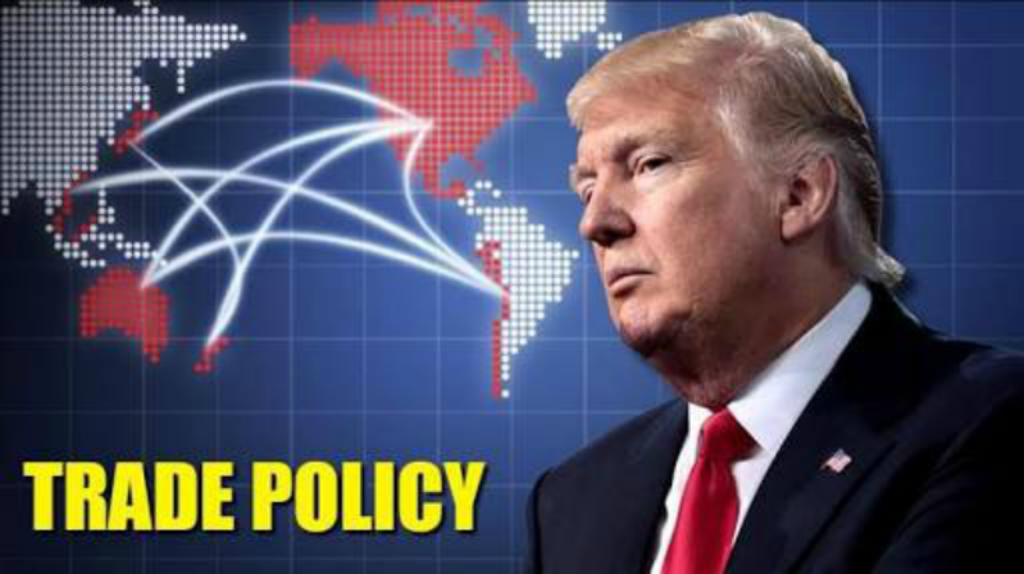
As expected, the Trump Administration has imposed a new set of tariffs on goods imported from China and the Chinese have immediately responded in what is quickly descending into a tit-for-tat trade war that doesn’t seem to have an endpoint:
WASHINGTON — A trade war between the world’s two largest economies officially began on Friday morning as the Trump administration followed through with its threat to impose tariffs on $34 billion worth of Chinese products, a significant escalation of a fight that could hurt companies and consumers in both the United States and China.
The penalties, which went into effect at 12:01 a.m., prompted quick retaliation by Beijing. China said it immediately put its own similarly sized tariffs on an unspecified clutch of American goods. Previously, the Chinese government had said it would tax pork, soybeans and automobiles, among other goods.
In a statement, China’s Ministry of Commerce said the United States “has launched the biggest trade war in economic history so far.”
The escalation of the trade war from threat to reality is expected to ripple through global supply chains, raise costs for businesses and consumers and roil global stock markets, which have been volatile in anticipation of a prolonged trade fight between the United States and almost everyone else.
On Thursday, President Trump showed no signs of backing down from his fight, saying aboard Air Force One that the first wave of tariffs on $34 billion in goods would quickly be followed by levies on another $16 billion of Chinese products. And Mr. Trump continued to threaten Beijing with escalating tariffs on as much as $450 billion worth of Chinese goods.
For now, it is unclear how — or whether — the trade war might conclude. Mr. Trump’s threats have been met with vows from China to retaliate, a stalemate that will require one side to blink first in order to avoid a protracted fight. With no official talks scheduled between the two countries, and disagreements within the Trump administration about how best to proceed, a quick resolution seems increasingly unlikely.
“At the moment, I don’t see how this ends,” said Edward Alden, a senior fellow at the Council on Foreign Relations. “This is very much in the president’s hands because he’s got advisers that seem divided, some substantively, some tactically. I just don’t think we’ve had any clear signs of the resolution he wants.”
The Trump administration is waging trade wars on multiple fronts as it imposes tariffs on foreign steel, aluminum, solar panels and washing machines from countries like Canada, Mexico, the European Union and Japan. Yet the tariffs on China, the world’s largest manufacturing hub, affect a much larger share of products and a greater percentage of companies that rely on global supply chains, potentially hurting American companies even more than the Chinese firms the Trump administration is targeting.
Mr. Trump’s aggressive stance toward China is aimed at pressuring the country to curtail what the White House describes as a pattern of unfair trade practices and theft of American intellectual property. In addition to the tariffs, the White House is placing restrictions on investment and on visas for Chinese nationals. The administration says the trade barriers are being used as leverage to force Beijing to make changes, including opening its markets to American companies and ending its practice of requiring firms operating in China to hand over valuable technology.
But the trade measures come at a cost for American firms, which are facing potentially devastating disruptions to their businesses.
As of Friday morning, companies like Husco International, a Wisconsin-based manufacturing company that makes parts for companies like Ford, General Motors, Caterpillar and John Deere, now face a 25 percent increase on a variety of parts imported from China. Austin Ramirez, Husco International’s chief executive, said that increase would immediately put him and other American manufacturers at a disadvantage to competitors abroad.
“The people it helps most of all are my competitors in Germany and Japan, who also have large parts of their supply chain in Asia but don’t have these tariffs,” he said.
Mr. Ramirez said his company would not be able to absorb the additional costs, and would be forced to try to pass them on to suppliers or customers — if it could. He was also fearful of how China’s tit-for-tat retaliation would ultimately affect his business in that country.
“One of the big scary unknowns is we don’t know how China will react,” Mr. Ramirez said. “There are lots of things they could do to make life difficult for U.S. businesses operating in China that would be detrimental to us.”
Not surprisingly, the Chinese struck back almost immediately after the new tariffs went into effect, but even in the Middle Kingdom concerns about the domestic impact of the back-and-forth tariffs is becoming a cause for concern:
SHANGHAI — Accusing the United States of “typical trade bullying,” China on Friday imposed $34 billion in retaliatory tariffs on American products, suggesting dim prospects for resolving a potentially bruising trade war between the two economic powerhouses.
Beijing said on Friday that its levies had kicked in immediately after the Trump administration’s tariffs went into effect, just past midnight in Washington. Chinese officials did not immediately specify which products would be hit, although they had previously threatened to tax pork, soybeans and automobiles — products aimed at hitting President Trump’s supporters in the agricultural and industrial parts of the Midwest.
As it has in the past, China used the moment to cast itself as a defender of the global trade order. Beijing officials have portrayed Mr. Trump’s threats to tax as much as $450 billion worth of Chinese goods as a threat to global prosperity.
“The wrong actions of the U.S. have brazenly violated the rules of the World Trade Organization, attacked the whole world’s economic sustainability and obstructed the global economy’s recovery,” Lu Kang, a spokesman for China’s Foreign Ministry, said in a daily news briefing. “It will bring disaster to multinational corporations, small and medium businesses and normal consumers across the world.”
China’s state-controlled news media echoed the sentiment.
“As the American side has gradually closed in on China, it has aroused the ire of Chinese society, and made Chinese people more clearheaded, more united,” said an editorial on the website of Global Times, a nationalist tabloid owned by the Communist Party. “Washington has obviously underestimated the giant force that the world’s opposition and China’s retaliation can produce.”
But Chinese news outlets have stopped short of language that would suggest appetite for a major escalation, such as a consumer boycott of American brands.
(…)
[S]ome consumers said they could imagine making do without iPhones or American cars as a way to strike back against Washington.
“Of course I want China to fight back,” said Cathy Yuan, 32, who was shopping at an upscale Shanghai supermarket on Friday. “We are defending our rights as a nation.”
Other shoppers sounded warier. Fresh American beef and other high-end imports — goods that are likely to become more expensive as more tariffs are imposed — lined the shelves.
“High-quality fresh food is already quite expensive, and with tariffs, prices will go up even further,” said Wan Yang, a 27-year-old seafood dealer who imports black cod and king crab from Alaska.
Health and hygiene concerns have led China’s increasingly well-off shoppers to prefer food imported from the United States or elsewhere.
“We buy imported goods because we feel they are safer to eat,” said Mike Zheng, 30, who was browsing the aisles with his 2-year-old son. “If there were domestic substitutes, then tariffs would be O.K. But domestic products can’t keep up, so we’ll just have to accept higher prices.”
That could become a problem for Chinese leaders. Inflation is an economic gauge that is of paramount, constant concern. In the past, rising prices have contributed to political instability. The Chinese government has used price controls and subsidies to tamp down inflation, but that could get expensive quickly.
In the end, of course, neither the United States nor China will “win” this trade war unless the leaders of the respective nations are able to end this ridiculous back-and-forth nonsense and come to an agreement that reduces trade barriers and reduces the harm that this will ultimately cause to American and Chinese businesses and consumers.
Here in the United States, we’re already seeing signs that the President’s trade war, which extends not only to China but also to Europe, Canada, Mexico, and other nations, is having an impact. Two months after President Trump imposed tariffs on imported steel and aluminum, The Wall Street Journal reported that prices for both foreign and domestic steel and aluminum were increasing and having a negative impact on manufacturers that rely on these raw materials for their products. Other reports have indicated that American pork farmers were increasingly nervous about their overseas business with nations like China. In Iowa specifically, it is being reported that Chinese retaliation for the tariffs imposed on Chinese goods could cost soybean farmers $624 million this year alone, with the prospect of larger losses if the retaliation continues beyond this year. This has led many leaders in Iowa and elsewhere, including Senator Chuck Grassley to express concern about the impact of the trade war on Republican fortunes in the fall. This is especially true given the fact that the tariffs seem to be expressly targeted toward Trump voters and middle-class Americans. This month has also seen that the tariffs have had a negative impact on other American businesses, and has even led an iconic American brand like Harley-Davidson to announce that they are moving some production overseas in response to the retaliatory tariffs imposed by the European Union.
In some respects, of course, the Chinese will likely be able to absorb some of the consequences of these tariffs due to the manner in which the government manipulates the domestic economy but even there it’s likely that consumers and businesses will feel the impact of both the American tariffs and the retaliation that the Chinese government has engaged in. Prices for American-made goods, many of which are prized among China’s upper and middle class due to their higher quality compared to domestic goods, will increase notwithstanding government efforts to control those costs. This will likely be felt the most in the agricultural sector where products made from American farm goods will either increase or, potentially, disappear from the shelves altogether. While this may only have a limited impact on China’s overall economic picture, and the government will likely do its best to hide the reality of that impact from the public, it will be impossible to completely shield Chinese companies and consumers from the full impact of a trade war.
In the end, though, one has to be clear where responsibility for the current trade wars, both the ongoing fight with China and the one that appears to be developing between the United States and its most important allies, lies. It’s not in Europe, Canada, Mexico, or in China, it’s right here in the United States in the person of President Donald J. Trump. Even if one could make the case that some of the complaints the President has voiced regarding the status of our trade relations with other nations are accurate, and most of them are not, the proper way to respond to them isn’t by engaging in an ill-advised series of escalating tariffs that will ultimately cause far more harm than good to the American economy. The proper way is to take these disputes to the World Trade Organization for adjudication as that treaty contemplates, or to negotiate directly with the country alleged to be acting improperly. That’s apparently not good enough for Trump, and he’s apparently surrounded himself with people such as Gary Cohn and Peter Navarro who agree with him that “trade wars are good and easy to win,” and he has convinced himself that this is the proper way to proceed. If he stays this course, then we’re all going to find out just how wrong they are.

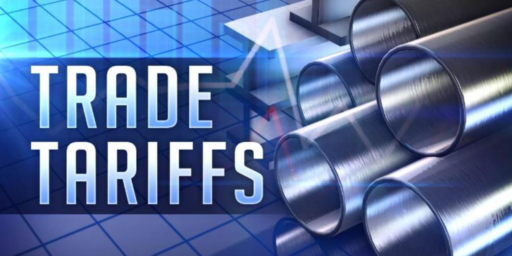
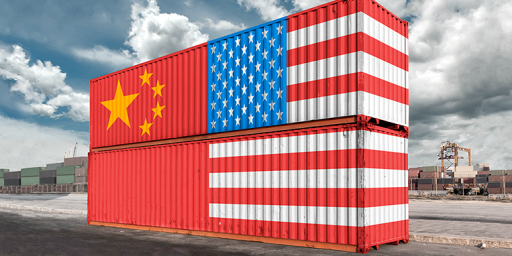
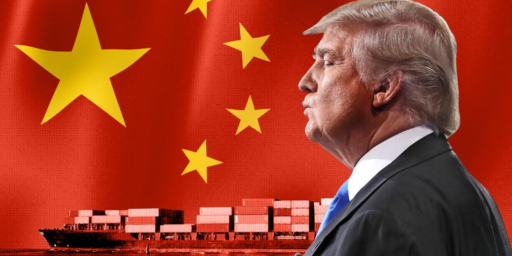
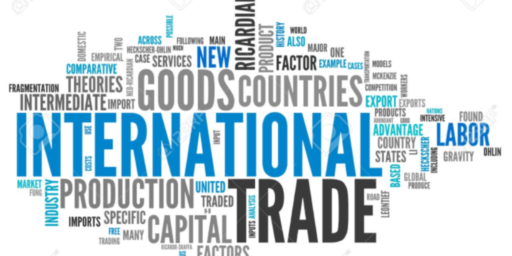

So if this trade war tanks the economy, the GOP can kiss the mid-terms good-bye.
@Justin:
Sadly, probably not. It’ll take longer than that for the effects to spread enough to convince the 10% of voters who don’t follow team lines (90% of people always vote for the same party with the loyalty of say a baseball team fan who remains loyal year after year no matter how the team is doing) to go to the polls for midterms.
I figure somewhere in this is money for Trump, maybe selling short or the like. But yeah, he’s going to tank the economy. I doubt he cares. And I doubt GOP voters will turn away from the GOP because of it (think of Yankee’s fans and Red Sox fans – doesn’t matter who’s leading the league, no one changes teams … if only we could convince people that their team is America, not a political party).
Oil shocks always cause recessions, but they take 18 months to do it. IDK how long this crap will take.
Yea I must agree with George.
As I said in my post on the jobs numbers this morning, the full impact of the tariffs will likely take some time to become apparent. Additionally, it’s unclear what impact they’ll have on the economy overall. Current estimates put the total American Gross Domestic Product at roughly $18.5 trillion. So far the tariffs are in the hundred billion dollar range. That’s basically a rounding error in terms of the total economy, at least initially. In the short term, the biggest impact will be felt mostly in the industries most directly impacted by the back-and-forth tariffs but even there it will be some time before the full impact is known for sure.
There’s a large manufacturing business in my rural home town which fabricates metal roofing. There’s a lot of employees at that business who probly have Trump bumper stickers who are about to see their hours cut.
In terms of gross dollars, yeah it’s a rounding error in the overall economy. The devil is in the multiplier effects as these tariffs get recharged to each entity that handles any tariffed commodity.
By this time next month, Cheeto benito will be claiming the steel and aluminum tariffs that began the war, were in retaliation for the tariffs China and Europe and Canada and Mexico placed on US goods.
You know, like the German invasion of Poland was in self-defense.
I think its possible that the psychological effects on the economy may be felt sooner this time around, in part because there is so much media attention on both the tariffs and the “Trump Voter” in the heartland who just wanted to be heard. And with Trump going after Harley Davidson after it had tried to garner favor, other companies may be more likely to place blame where it belongs.
@Kathy:
Better a trade war than a shooting war, provided trade wars can keep the man-toddler’s attention diverted enough.
how to lose a trade war
trump tariffs gonna put a number of small-to-medium farmers outta business, hurt a lot of manufacturing companies and workers.
They voted 2-1 for that idiot, so there’s some cosmic justice I guess.
Amusing side note for fellow Libtarts: espresso machines aren’t on the list of tariffed equipment, but chik-fil-a pressure cookers are. 😛
WSJ: trump counties hit harder by tariffs
Poor Trumpers. 😀 😀 😀
Everybody who supports trump gets damaged.